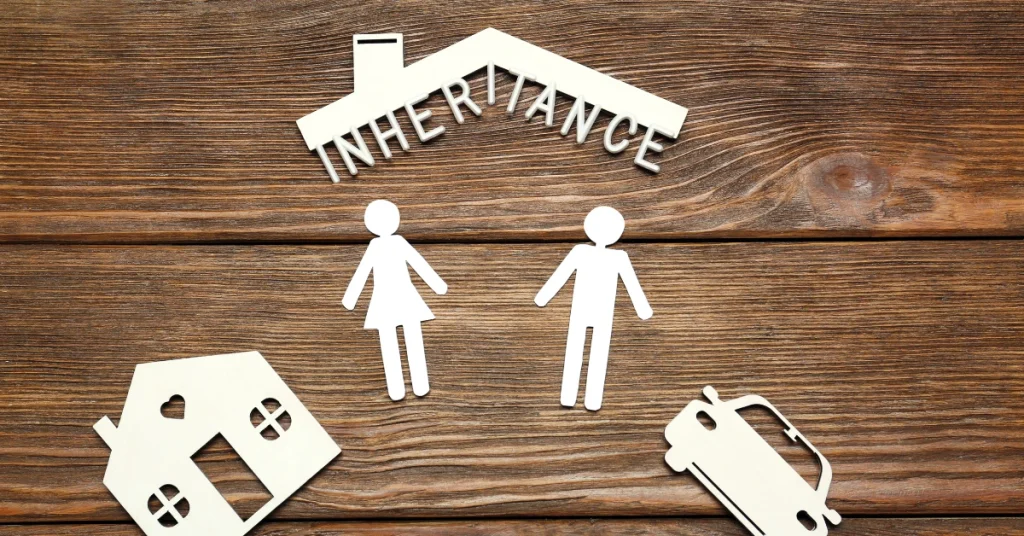Key Takeaways:
- Divorce revokes ex-spouse inheritance rights but doesn’t eliminate support obligations or dependent claims against your estate
- The 2022 Ontario law changes mean separated spouses (as of January 1, 2022) no longer inherit, but specific criteria must be met
- Support obligations survive death and must be paid before any assets go to beneficiaries, including your current spouse
- Ex-spouses can claim dependent support from your estate within six months of probate, even without inheritance rights
- Separated (not divorced) spouses retain property division rights and may claim equalization payments from your estate
- Joint assets with right of survivorship pass to ex-spouses regardless of your will unless ownership is changed
- Beneficiary designations on insurance and retirement accounts override your will; outdated designations can direct assets to ex-spouses
Stop assuming your divorce automatically protects your estate from your ex-spouse.
Ex-spouse inheritance rights in Ontario are complex and often misunderstood. While divorce does revoke many inheritance rights, separated spouses, support obligations, and dependent claims can still impact your estate significantly. The 2022 changes to Ontario’s Succession Law Reform Act have created new rules that every divorced or separated person needs to understand.
As a family lawyer who has practiced in Ontario since founding Nussbaum Law in 2012, I’ve seen too many families blindsided by ex-spouse claims against estates. The financial and emotional devastation could have been prevented with proper planning. Here’s everything you need to know about protecting your estate while meeting your legal obligations.
The Reality of Ex-Spouse Rights After Divorce
Here’s what most people don’t understand: divorce doesn’t automatically eliminate all financial connections between former spouses. While your ex-spouse may lose their right to inherit from your will, they may still have valid claims against your estate through three distinct legal pathways.
First, any outstanding support obligations survive your death and become debts that your estate must pay. Second, if your ex-spouse was financially dependent on you, they may claim dependent support from your estate. Third, if you were only separated (not divorced) when you died, the inheritance rules become even more complex.
The stakes are real. I’ve represented families where ex-spouses successfully claimed hundreds of thousands of dollars from estates, leaving intended beneficiaries – including new spouses and children – with far less than expected.
How Divorce Affects Your Will in Ontario
A will is not automatically revoked by a divorce. Instead, a will made before a divorce is read as if the ex-spouse died immediately prior to the testator’s death. This creates a critical gap in your estate planning that many people overlook.
What Happens to Your Ex-Spouse’s Inheritance Rights
When you divorce in Ontario, your ex-spouse automatically loses:
- Executor/Estate Trustee Status: They can no longer act as your estate trustee
- Beneficiary Rights: Any gifts or bequests to them are void
- Intestacy Rights: They cannot inherit if you die without a will
However, your estate plan likely becomes “a mess” because removing your ex-spouse from the will doesn’t automatically redirect their intended inheritance to your new beneficiaries. This is why you should immediately create a new will after divorce.
The 2022 Game-Changer: New Separation Rules
Certain amendments to Ontario’s Succession Law Reform Act came into force January 1, 2022, fundamentally changing how separated spouses are treated. Now, separated spouses will not inherit under their former partner’s will or from a former partner’s intestate estate, provided the couple was separated on or after January 1, 2022.
The law considers spouses “separated” when they live “separate and apart as a result of the breakdown of their marriage” and meet specific criteria:
- They separated on or after January 1, 2022
- They had been separated for at least 3 years and were still separated before death
- They got a separation agreement, arbitration agreement, or court order that resolves all family law issues on January 1, 2022, or later
Support Obligations That Survive Death
Support obligations – whether spousal or child support – are considered debts that survive your death. These debts must be paid in full before any amount is distributed to beneficiaries of your estate.
Outstanding Support Payments
If you owe a duty to support a former spouse through a separation agreement or court order, this duty likely forms a debt due by your estate. Your estate trustee must pay these obligations before distributing any assets to beneficiaries, including your current spouse or children.
Life Insurance and Security Requirements
Many separation agreements require the paying spouse to maintain life insurance naming the ex-spouse and children as beneficiaries. This ensures support continues even after death. Courts can also order you to name your ex-spouse and children as beneficiaries of existing life insurance policies.
Enforcement After Death
If you were paying support to your ex-spouse under any order or agreement at the time of your death, they will have a claim against your estate to continue those payments or receive an adequate lump sum to compensate for the loss of that support.
Dependent Support Claims: The Hidden Threat
Even if your ex-spouse has no inheritance rights, they may still claim dependent support from your estate under Ontario’s Succession Law Reform Act. This is one of the most misunderstood aspects of estate law.
Who Can Make a Dependent Support Claim
A “dependent” includes:
- A spouse (including common-law spouse)
- A parent, brother, or sister
- A child
- Anyone to whom the deceased was providing support or was under a legal obligation to provide support
The Six-Month Window
Dependent support claims must generally be made within six months of probate being granted. However, courts have discretion to allow claims after this period, though they will only pertain to the undistributed portion of the estate.
What Courts Consider “Adequate” Support
When assessing dependent support claims, courts consider:
- The dependent’s financial needs and means
- The deceased’s assets and estate value
- The dependent’s age, health, and capacity for self-support
- The length of the relationship and degree of dependency
- Support provided to other dependents
The Reach of Dependent Claims
Dependent support claims are powerful because they reach assets that otherwise might be outside the estate, including:
- Joint ownership properties (real estate, bank accounts)
- Beneficiary designations (life insurance, TFSA, RRSP, RRIF)
- Assets that pass by right of survivorship
Property Division Rights for Separated Spouses
If you die while separated but not divorced, your ex-spouse may still have property division rights under Ontario’s Family Law Act. These rights can significantly impact your estate distribution.
Equalization Rights
Under Ontario’s Family Law Act, married spouses are entitled to an equalization payment – half of the difference in net family property acquired during the marriage. If you die while separated, your spouse may choose between:
- Claiming equalization under the Family Law Act
- Accepting their entitlement under your will
- Claiming intestacy rights under the Succession Law Reform Act
Property That Remains Joint
Until property is formally divided, separated spouses retain rights to:
- Matrimonial Home: Both spouses have equal rights to possession
- Joint Bank Accounts: Surviving spouse typically receives the full balance
- Jointly Owned Investments: Subject to specific beneficiary designations
Time Limits for Claims
Separated spouses have six years from the separation date or two years from the divorce being finalized (whichever comes first) to make equalization claims. However, death can complicate these timelines.
Protecting Your Estate from Ex-Spouse Claims
Understanding the risks is only half the battle. Here’s how to protect your estate while meeting your legal obligations:
Create a New Will Immediately After Divorce
Never assume your old will automatically adapts to your new circumstances. Create a comprehensive new will that:
- Revokes all prior wills
- Names new executors and beneficiaries
- Addresses all assets and personal property
- Includes specific bequests to avoid confusion
Address Support Obligations Directly
Be explicit about how your estate will handle ongoing support obligations:
- Specify which assets will pay support debts
- Consider life insurance to cover support payments
- Include language about lump-sum settlements
- Plan for inflation and changing needs
Consider Dependent Support Exposure
If former dependents might claim support from your estate:
- Provide adequate bequests to potential claimants
- Use life insurance to meet support obligations
- Include language explaining your support decisions
- Consult with an estate lawyer about vulnerable beneficiaries
Separate Your Assets Properly
If you received an inheritance during marriage, protect it by:
- Keeping inherited assets in separate accounts
- Avoiding commingling with marital property
- Maintaining clear documentation of the inheritance source
- Never using inherited funds for the matrimonial home
Update Beneficiary Designations
Review and update all beneficiary designations on:
- Life insurance policies
- Retirement accounts (RRSP, RRIF)
- Tax-free savings accounts (TFSA)
- Employment benefits
- Investment accounts
Joint Assets and Rights of Survivorship
One of the most overlooked areas involves jointly held assets. Even after separation or divorce, jointly held property with rights of survivorship typically passes to the surviving owner, regardless of your will.
Properties to Review
Common jointly held assets include:
- Real estate (especially the matrimonial home)
- Bank accounts
- Investment accounts
- Vehicles
- Business interests
Changing Joint Ownership
To remove your ex-spouse from joint ownership:
- Consult with a real estate lawyer for property transfers
- Close joint bank accounts and open individual accounts
- Transfer investments to individual ownership
- Update vehicle registrations
- Review business partnership agreements
The Matrimonial Home Exception
The matrimonial home receives special treatment under Ontario law. Even if you owned the home before marriage or received it as inheritance, it must be shared equally unless you have a valid domestic contract stating otherwise.
Common Mistakes That Cost Families
In my practice, I repeatedly see these costly errors:
1. Assuming Divorce Fixes Everything
Divorce revokes your ex-spouse’s inheritance rights, but support obligations and dependent claims can still impact your estate significantly. Many people create new wills but fail to address ongoing financial obligations.
2. Ignoring Beneficiary Designations
Wills don’t control assets with beneficiary designations. If your ex-spouse is still named as the beneficiary on your life insurance or retirement accounts, they’ll receive those assets regardless of your will.
3. Incomplete Asset Separation
Failing to properly separate joint assets means your ex-spouse may still have claims through rights of survivorship or property division laws.
4. Inadequate Support Planning
Not providing adequate support for former dependents can lead to successful claims against your estate, potentially exceeding what you would have provided voluntarily.
5. Delaying Estate Planning Updates
The longer you wait to update your estate plan after separation or divorce, the greater the risk of unintended consequences. Life changes quickly, and outdated plans can become expensive mistakes.
The Impact on Your Current Family
Ex-spouse claims don’t just affect your estate – they directly impact your current spouse and children. Here’s what they need to know:
Current Spouse Considerations
Your current spouse may face:
- Reduced inheritance due to ex-spouse claims
- Delays in estate distribution while claims are resolved
- Potential displacement from the matrimonial home
- Emotional stress during an already difficult time
Children from New Relationships
Children from your current relationship may receive less than planned if:
- Support obligations take priority over bequests
- Dependent support claims reduce available assets
- Ex-spouse property rights affect estate distribution
- Joint assets pass to your former spouse instead
Planning for Blended Families
Blended families require special attention because:
- Children from previous relationships may have support claims
- Ex-spouses may have ongoing financial rights
- Current spouses may lack automatic protection
- Estate planning becomes more complex but more critical
When Professional Help Is Essential
Ex-spouse inheritance issues require professional legal guidance. You need an experienced family lawyer when:
Immediate Situations
- You’re going through divorce or separation
- Your ex-spouse has made claims against your estate
- You’re the executor of an estate with ex-spouse issues
- You’re facing dependent support claims
Planning Situations
- You have ongoing support obligations
- You’re in a blended family situation
- You have significant joint assets with an ex-spouse
- You received inheritance during marriage
Complex Scenarios
- Your ex-spouse died while you were separated
- You have assets in multiple provinces
- You have business interests that complicate property division
- You’re dealing with international assets or ex-spouses
Taking Action: Your Next Steps
Ex-spouse inheritance rights in Ontario are complex, but with proper planning, you can protect your estate while meeting your legal obligations. Here’s what you need to do:
Step 1: Assess Your Current Situation
- Review your existing will and estate plan
- Identify all joint assets and beneficiary designations
- Calculate ongoing support obligations
- Determine potential dependent support exposure
Step 2: Update Your Legal Documents
- Create a new will that addresses your current circumstances
- Update all beneficiary designations
- Review and modify joint asset ownership
- Ensure domestic contracts are current and comprehensive
Step 3: Plan for Ongoing Obligations
- Secure adequate life insurance for support obligations
- Create funding mechanisms for potential dependent claims
- Address tax implications of estate planning changes
- Consider trust structures for complex family situations
Step 4: Get Professional Guidance
- Consult with an experienced family lawyer
- Review your plan with a qualified estate planning professional
- Consider the tax implications with an accountant
- Ensure your insurance coverage meets your needs
Your Estate’s Future Depends on Getting This Right
Ex-spouse inheritance rights in Ontario don’t end with divorce. Support obligations, dependent claims, and property division rights can all impact your estate long after your marriage ends. The 2022 changes to Ontario’s succession laws have created new protections for some, but gaps remain that can expose your estate to unexpected claims.
The key is understanding that estate planning after divorce isn’t just about updating your will – it’s about comprehensively addressing all the ways your former spouse might still have claims against your estate. This includes ongoing support obligations, dependent support claims, joint asset ownership, and beneficiary designations.
Your estate plan should protect your current family while meeting your legal obligations to former dependents. This requires careful planning, professional guidance, and regular updates as your circumstances change.
Don’t let outdated estate planning or misunderstood ex-spouse rights derail your family’s financial security. The costs of proper planning pale in comparison to the potential losses from unaddressed ex-spouse claims.
Whether you’re recently divorced, currently separated, or dealing with complex blended family dynamics, taking action now protects everyone you care about. Your family’s future depends on getting this right – and the law gives you the tools to do it properly.
The question isn’t whether ex-spouse inheritance issues will affect your estate – it’s whether you’ll be prepared when they do. Take control of your estate planning today, because your family’s financial security depends on it.











